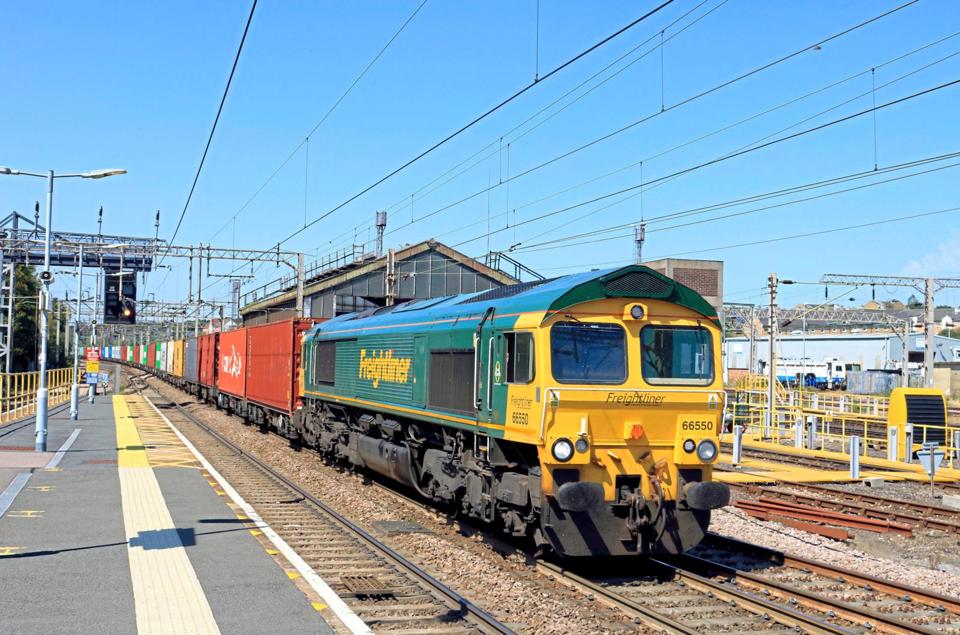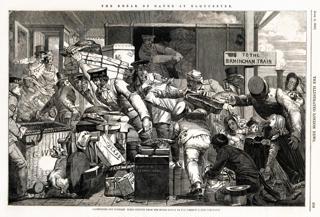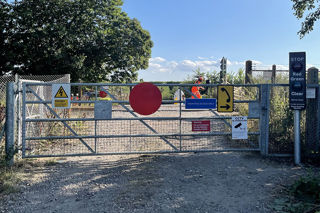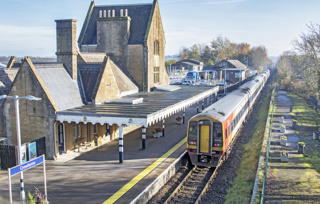Maggie Simpson on measures the next government must take to boost the freight sector and beat targets.
The world of politics is rarely stable, but 2024 has already come with its fair share of turmoil.
Maggie Simpson on measures the next government must take to boost the freight sector and beat targets.
The world of politics is rarely stable, but 2024 has already come with its fair share of turmoil.
Scotland, Wales and Northern Ireland each have newly elected First Ministers, and the May local elections saw new mayoralties created and others change party, as did a vast array of local councils.
July 4’s General Election is also expected to bring sweeping changes to the political landscape.
Whatever the result of the election, there will inevitably be change. There are significant boundary changes across the country and many MPs have chosen to stand down, so there will be new faces for all parties.
In the event of a Conservative victory, the inevitable reshuffle will feature new ministers in transport and indeed across government.
A Labour victory would see the most sweeping change, which may (or may not) see the current shadow teams installed in Government.
So, whichever way the country votes, the railways can look forward to some new faces - and some new policies to suit.
The Labour Party has already given some indication of its thinking, with its Getting Britain Moving: Labour’s Plan to Fix Britain’s Railways, published in April.
At the Rail Freight Group, we welcomed the commitment to rail freight growth outlined in the paper, along with the supporting measures to protect private sector operators - including a commitment to a freight growth target similar to that already in place.
This means that whatever the election result, the new government (be it Labour or Conservative) will be committed to supporting rail freight growth in its plans.
This is an excellent place to start, but what then does it mean in practice? And what are the priorities that we will be calling for in order to deliver that growth?
At the highest level, the General Election will hopefully bring an economic reboot.
There is an overwhelming sense of hiatus at the moment, which is hampering economic recovery and growth. For example, reducing interest rates to stimulate house building would have a significant positive impact on rail freight by getting the construction market back into activity.
Focusing on delivery from freeport zones, new industrial strategies, progress on green energy and so on can all help to support rail freight, even when these policies are not themselves within transport.
A new government could also bring a greater focus on freight and its importance.
With the other freight trade associations, we have collectively suggested that a Minister for Logistics role should be established - to co-ordinate actions across government to help supply chains be more efficient and productive, helping to improve national resilience as well as supporting UK exporters and inward investors.
This role would not replace the current roles within specific modes, but rather to co-ordinate action and bring a much-needed focus at senior level to the sector.
Turning to the railways themselves, the new government will need to act in support of the freight growth that the present incumbent has championed. To do that, it is self-evident that we need structural rail reform to work for freight.
Under current plans, and under those set out by Labour, there is a risk that freight (and other ‘non-GBR’ operators) could be marginalised. It is therefore essential that there is a governance framework (from Government down) that supports freight, and an organisational structure that encourages the right behaviours.
We have written about that many times in this column, and there has been progress, but there is undoubtedly more to do.
Yet reform is only part of the story, so what else should be a focus to turbo-charge growth?
Firstly capacity. You cannot grow if you cannot run more trains, and in too many parts of the network there is a risk of insufficient capacity.
The debate over the East Coast Main Line timetable is a good example of this.
The original timetable work was so focused on passengers that it almost completely excluded freight. After many years of work, the resulting timetable scarcely allowed for today’s freight trains, let alone growth - a situation made worse by the cancellation of some infrastructure works necessary to fit all the extra passenger trains on the route.
We are also increasingly concerned over the impact of the cancellation of HS2 Phase 2A, if additional HS2 services are forced through north of Birmingham without the necessary infrastructure upgrades.
We are therefore asking for freight capacity to be protected and safeguarded for growth, and that the thinly veiled attempts to weaken the access regime are stopped.
Freight capacity must also be considered on a nationwide basis, particularly if there is more devolution of power at local level (for example, to Metro Mayors).
Providing capacity may, in places, require government to commit to investment in the network. Our asks include:
The Ely Area Capacity Enhancement scheme, promised in Network North and still not under way.
Completion of the Transpennine Route Upgrade.
Work to ensure freight capacity is not compromised at Handsacre Junction.
Several other small schemes which are in development.
New capacity is essential, but rail freight also needs to be affordable for users.
Over time, rail costs have risen by much more than road costs, leaving a price gap for potential customers. This is perverse, given the desire to see more freight moving by rail, and leaves some existing customers seeing track access charges rising significantly ahead of inflation.
We are calling for a 20% reduction in track charges in real terms by 2029, along with doubling the budget of the Mode Shift Revenue Support scheme for traffic where costs are not competitive.
Freight trains also need to be loaded… and unloaded. Rail freight terminals are, almost exclusively, developed by the private sector. But government can help support new and extended sites through more effective planning policy.
In particular, the planning system needs to better recognise the needs of freight in all its modes, and ensure that sufficient land is protected for industrial and logistics needs.
Too often, the pressure for new housing means that land is lost, or adjacent development threatens the operation of terminals through noise or other complaints, increasing costs and complexities for business.
We are asking for protection of key rail freight sites, and for the widespread adoption of the ‘agent of change’ principle so that new developments must pay to ensure proper sound (and other) protection from existing users.
We are also asking for the reintroduction of the freight facilities grant in England, to support new terminals and connections to the network where the costs of this are greater than they would be for road-fed terminals.
Businesses are looking to increase their use of rail because of the carbon savings it brings. At the same time, the freight sector needs support for decarbonisation and the actions necessary to meet Net Zero 2050 itself.
We are calling for 60 missing miles of electrification to be completed, allowing more freight to be electrically hauled.
This will enable whole journeys to be undertaken with electric locomotives, and support the introduction of new bi-mode locomotives which will need to be ‘pantograph up’ wherever possible.
The poster child for this is the three-mile branch line to the port at London Gateway, which (if electrified) would enable up to ten daily services to switch from diesel.
It is a sad indictment of the current plans that this scheme, which has been studied many times, remains incomplete, despite the significant growth from the port, freeport policy and the likelihood of third-party contributions.
Meanwhile, freight operators could make more use of lower-carbon fuels such as HVO (hydrotreated vegetable oil) if the price were more competitive, and the sustainable supply was ensured.
While there is high demand for these fuels, government needs to support their use in rail through the right policy levers and investment.
Finally, and in line with many other sectors, we are calling for reform of the apprentice levy, to recognise the importance of other types of training, and to ensure that sufficient courses and providers are available to support apprentice training across the country.
Rail freight businesses, including in the supply chain, are keen to bring more apprentices into the sector. But they can be frustrated by the inflexibility of the scheme and the lack of college places available.
As an industry, we will need to make the case for these asks, demonstrating consistently the benefits of growth and setting out our part of the bargain.
We already know the significant benefits that accrue from rail freight, including in carbon savings and road decongestion, but we will need to articulate this in line with new government objectives and show how we will support their ambitions.
We need to articulate the role we play in bringing new private sector investment, job creation, productivity gains, and in making more use of data and technology - and step up where we can do more.
In a reformed industry, the freight sector will need to work hard to make its voice heard, and to highlight the compelling reasons for supporting growth and delivering on industry asks.
Whenever and however the next government is formed, we are optimistic that the case for more freight by rail will be made.
This article first appeared in RAIL. Subscribe to never miss an issue
Login to continue reading
Or register with RAIL to keep up-to-date with the latest news, insight and opinion.


















Login to comment
Comments
No comments have been made yet.